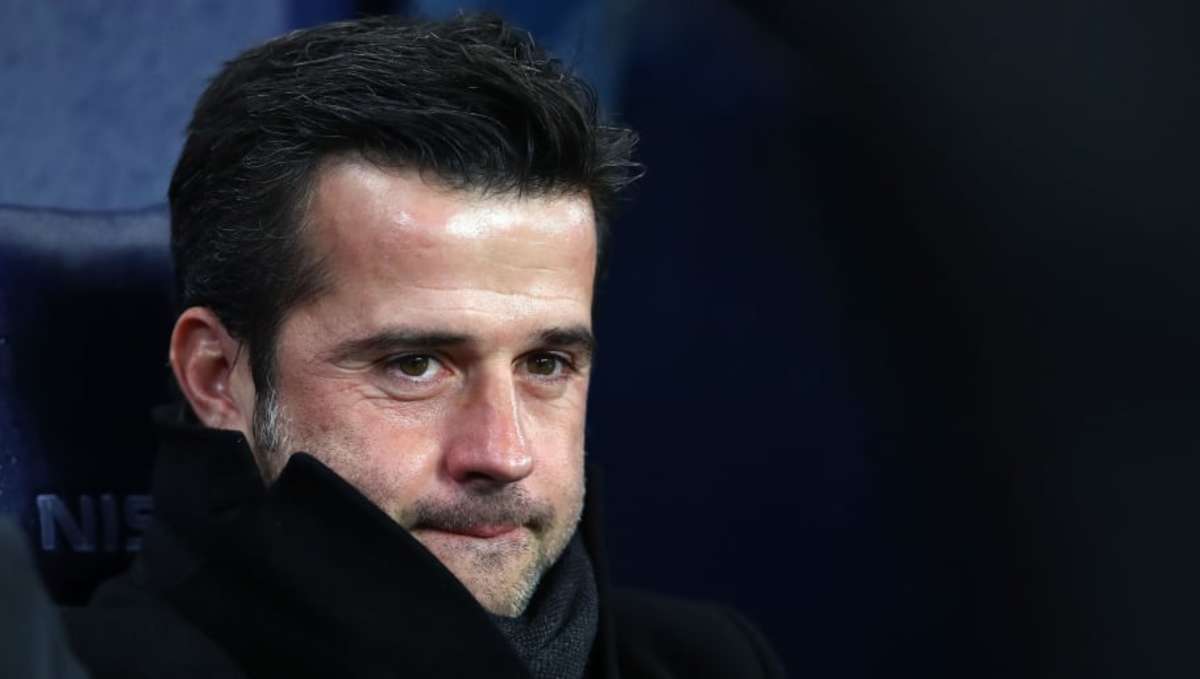Why Everton Will Be Marco Silva's Last Chance at Premier League Success After Ugly Watford Split

Cast your mind, if you will, back to the summer of 2017.
Amid the general election chaos and the impending threat of nuclear war, one man was steadily building a name for himself as a potential star of the future in football management. That man was Marco Silva.
Fresh off the back of a barnstorming season at Olympiacos, where he guided the Greek side to a 43rd league title as well as a Champions League win over Arsenal, Silva soon found himself ditching the Mediterranean for Yorkshire as he was drafted in to save Hull City from relegation in the 2016/17 season.
Though ultimately Silva was unable to prevent the Tigers from dropping out of the Premier League, the Portuguese manager won plaudits for breathing life back into a side most had already consigned to a return to the second tier.
On May 25, 2017, one day after Hull's relegation, Silva resigned. Many potential suitors emerged, each one eager to find their injection of continental nuance that would turn them from mid-table wannabes into a side with the capacity to challenge higher up the table. Though Southampton and Crystal Palace were reportedly sniffing about, Silva found himself being appointed by Watford on a two-year deal.
Silva and Watford always seemed like an unholy union. With the Pozzo family's business model being to hire head coaches rather than managers and give them little control over any off-field business, one could be forgiven for expecting Silva to look for offers elsewhere.
The manager was already shaping up to be English football's latest enfant terrible, a precocious talent with an insatiable hunger for success on his own terms. Would a power struggle not erupt at Vicarage Road between the new manager and the club's prickly owners?
Once the Premier League season began, however, any doubts regarding Silva's suitability for the role soon evaporated. Watford enjoyed a fine start to the campaign, losing just one of their opening eight matches to rival Burnley as the surprise package of the season. Silva was hailed for his managerial brilliance once again, often compared to Mauricio Pochettino for his skill at bestowing mid-table sides with continental flair.
Then Everton came calling.
The souring of the atmosphere around Watford was almost instantaneous. Everton were persistent to a fault in their pursuit of Silva, and rumour around the Hertfordshire club was that the Portuguese reciprocated their interest. Unsurprisingly, however, the Pozzo family were unwilling to let their man go after just a few months in charge with over half the season still to play, in spite of Everton's reported £15m offer of compensation.
Though Watford fought tooth and nail to keep Silva and eventually succeeded, the damage had already been done.
The club's league performances deteriorated at an alarming pace, the Hornets slipping from Europa League outsiders to mid-table mediocrity in a matter of weeks. In late January of 2018, following a miserable run of just one win in 11 games, Silva was sacked.
Watford's press release pulled no punches, blaming an "unwarranted approach by a Premier League rival" which had caused "significant deterioration in both focus and results to the point where the long-term future of Watford FC has been jeopardised".
Fast forward to the present day, and Silva is being lined up for the Everton job for the second time in 12 months, this time as a replacement for the outgoing Sam Allardyce.
Owner Farhad Moshiri seems convinced that he has found the man to take his club forward into Champions League contentions, these ambitions having stalled previously under Ronald Koeman. Yet there is a toxic air surrounding Silva now that simply will not go away.
For one thing, the manager is beginning to earn a reputation for being mercurial and untrustworthy. Besides his first managerial position at Estoril, Silva has never spent more than a season at any club. He left Olympiacos despite an excellent season in Greece, knowing he would need to look elsewhere to experience the glory of top-level management. Less than a year later he was quitting another job, perhaps all too aware that the Championship was no place for a manager of his calibre. And no sooner had Silva begun to experience genuine success in the Premier League than he was angling for another move up the ladder, desperate to skip ahead to the end of the story where he has his hands around silverware and his name up in lights.
If Everton do appoint Silva as manager, they will be appointing a man whose win percentage in English football currently stands at a lowly 33%. Granted, there were factors at play beyond Silva's control in some of those results - the Hull side he inherited was barely serviceable - but do these statistics really suggest that he is the sure-fire appointment to bring the good times back to Goodison Park? And even if he does succeed, what is to stop Silva from ditching Everton 18 months later when a bigger club comes knocking?
There will be an enormous amount of pressure on Silva should he choose to return to the Premier League next season.
If he considers himself too good for the likes of Watford, there will be an immediate demand for him to prove he is worthy of a club of Everton's stature. For the sake of Silva's future career in management, it is crucial that he rises to the occasion.









